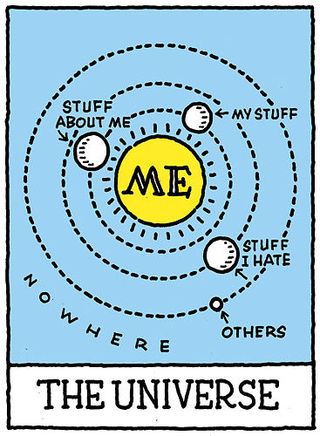I have probably had more people ask me about narcissism than any other disorder in the Diagnostic Manual of Mental Disorders. This doesn’t surprise me. Unlike most other disorders, narcissistic individuals can be very successful, and almost always very charming (when they want to be).
 Most questions about this topic come out of pure curiosity, but some inquiries about narcissism come from executives raising concerns over a common dilemma: "This successful person (client, agent, other executive etc) is causing me constant headaches!"
Most questions about this topic come out of pure curiosity, but some inquiries about narcissism come from executives raising concerns over a common dilemma: "This successful person (client, agent, other executive etc) is causing me constant headaches!"
In lay terms, "narcissism" means an almost total self-absorbtion. These individuals are focused on getting a continual stream of adulation on the one hand, and exhibit a complete lack of emotional vulnerability on the other. Narcissistic individuals can appear very charming superficially, and are often times (but not always) the life of the party.
The primary focus for them is to be "perfect" in every way in order to be above criticism or critique of any kind. They don't seek out any depth or attachment in relationships. Their egos are extremely fragile and to protect themselves, they devalue any input that may reveal flaws.
After seven years of successful therapy with one particular man who had this condition, he told me that he remembers a cheerleader in high school telling him (the star football player), "You are the most conceited person I have ever known," to which he replied: "Conceited? Me? No! Conceit is a flaw; I have no flaws!"
Unfortunately, when untreated, these individuals can ruin the overall reputation and character of a company or office. Narcissists can behave in ways that may lead other agents to want to sever ties and leave a company to get away from the arrogance. They tend to increase conflict, and lead to political and counterproductive office competition. Narcissists are likely to withhold information that could benefit everyone, including your customers, in order to get their needs met primarily.
So, regardless of how much market share a narcissist brings to your office, you need to seriously weigh the hidden costs: How do they impact morale? How many consumers do they turn off on their way to getting deals done? How do they represent your company? Do they act with the values that your company stands for?
I’m hesitant to give you a symptom list for Narcissists, but I will offer you just a few tips to consider when coaching, assessing, and training your agents to succeed in their attitudes towards others (From Bob Sutton's "17 things I Believe"):
- One of the best tests of a person's character is how he or she treats those with less power. Train your agents to treat everyone equally.
- Most agents are either novices or experts: Encourage your experts to seek-out novices to help; and your novices to seek out experts whom they can learn from.
- Encourage good questions rather than encouraging smart answers.
- Find people who err on the side of optimism and positive energy with others.
- Avoid pompous jerks whenever possible. They not only make you feel bad about yourself, chances are that everyone in your office will eventually start acting like them.
Editor's Note: This article was written by Dr. David Mashburn. Dave is a Clinical and Consulting Psychologist, a Partner at Tidemark, Inc. and a regular contributor to WorkPuzzle. Comments or questions are welcome. If you're an email subscriber, reply to this WorkPuzzle email. If you read the blog directly from the web, you can click the "comments" link below.

